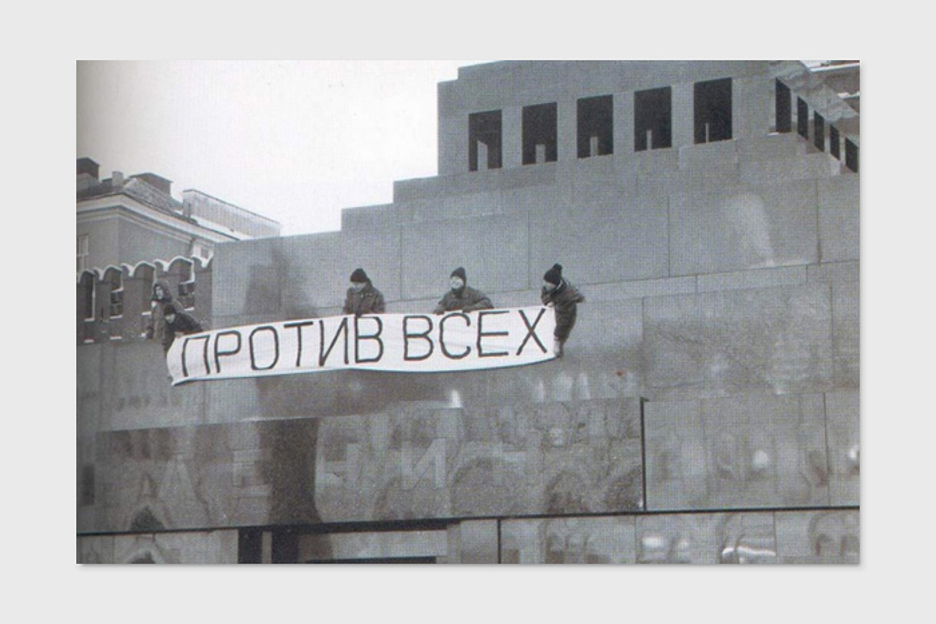Filed Under: Print > Visual arts > Anatoly Osmolovsky and the Non-Governmental Control Commission, “Against Everyone,” 1999
Anatoly Osmolovsky and the Non-Governmental Control Commission, “Against Everyone,” 1999

Against Everyone
“Against everyone” was an option consistently featured on post-Soviet ballots until the early 2000s. Implemented in 1991, it offered voters the largely symbolic possibility of expressing disapproval of all available candidates—an option that theoretically could, but rarely did, trigger re-elections until it was removed from all Russian ballots in 2006.
The 1999 action of the artists’ collective known as the Non-Governmental Control Commission displayed this voting option as an ambivalent banner over the Lenin Mausoleum, suggesting both a wholesale refusal and a seizure of symbolic power. Anatoly Osmolovsky (1969-), who led the action, described the group’s motives in a 2015 interview with the newspaper United Citizens’ Front, the outlet of the eponymous oppositional party founded by Garry Kasparov in 2005. In that interview, Osmolovsky claimed the action was influenced by the writings of Gilles Deleuze, Felix Guattari, and Michel Foucault in that it attempted to lay bare the coercive nature of pre-determined political choices.
Commenting on the eventual disappearance of “against everyone” from ballots, Osmolovsky described it as the consolidation of “oligarchic capitalism” and reaffirmed the importance of voting refusal over simply not voting or conforming to the limited options offered by the state. The 1999 action was intended to dispel the illusion that meaningful political choice was possible, and was supposed to be followed by another that would label public restrooms as “voting booths.” However, the first action drew attention from both the media and the police, who actively pursued the Nongovernmental Control Commission and Osmolovsky at the site of their next action, ultimately preventing them from carrying it out.